The Transformative Power of Research
Researchers in the School of Occupational Therapy are engaged in a wide range of research activities that are positively impacting how people engage with the world around them. Below are some examples of the work being done by faculty members and how it is or could be improving human health and well being and optimizing social inclusion and social justice around the globe.
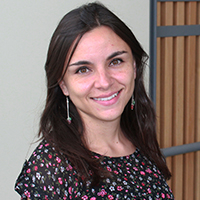 Supporting independence. Preventing injury.
Supporting independence. Preventing injury.
Driving takes us places. But when the rubber hits the road, whose at risk? Professor Liliana Alvarez is passionate about discovering the factors that influence road safety for drivers of all ages. By using a variety of research methods and technologies, including driving simulation and vehicle automation, her work specifically investigates the determinants of fitness to drive in those who are medically at-risk (e.g., individuals with Parkinson's disease) or those driving while impaired (e.g., by cannabis or alcohol). Trained in both the health and engineering sciences, Professor Alvarez seeks to uncover new ways to improve fitness to drive, an occupation that enables independence and participation for people across the world.
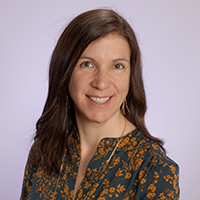 Understanding person and place
Understanding person and place
Professor Carri Hand is helping to create communities that support daily life and social inclusion for aging adults. Her research aims to understand the interactions between older adults and their neighbourhoods, focusing on how social and physical neighbourhood characteristics may limit or promote participation in occupations, connections with others, and a sense of belonging. With local community and academic partners, she is bringing together methods from occupational therapy, geography, and social science to develop new ways of studying neighbourhoods. Her research provides insight into the development of neighbourhood features; how health professionals can better promote social inclusion and connectedness in older adults; and how health services can better link with neighbourhood resources.
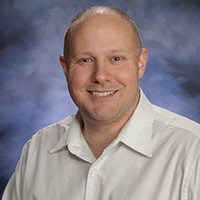
Managing and living with movement disorders
With an increasingly aging population, the prevalence of neurological disorders that hinder a person's ability to move is on the rise.
While there are many pharmaceutical interventions that can help patients cope, professor Jeffrey Holmes hopes to show that non-pharmaceutical management tools can also be effective in helping to maintain and/or improve functionality. His work aims to develop activity protocols that improve gait and balance and assist people in maintaining independence and quality of life.
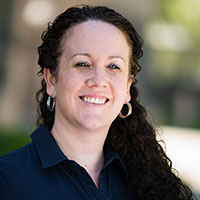 Enabling occupational engagement through supportive environments
Enabling occupational engagement through supportive environments
Pulling from a variety of disciplines including occupational therapy, disability theory, and critical gerontology, professor Colleen McGrath is expanding how we think about environmental access for older adults with age-related vision loss (ARVL). She is taking a holistic approach to understanding those environmental factors that support or restrict participation in meaningful occupations for the growing number of Canadian seniors who experience vision loss.
Using a variety of participatory and hands-on methods, Professor McGrath is also focused on expanding current understandings of how older adults make decisions about technology acquisition and particularly how issues of self-image and identity weigh into the decision-making process.
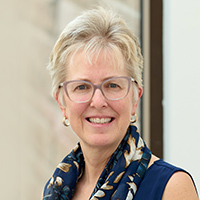 Advancing 'Decent Work' and workplace inclusion
Advancing 'Decent Work' and workplace inclusion
Professor Lynn Shaw research addresses work disparities, work disruptions and the systemic issues needed to create opportunities for Decent Work, social inclusion, the promotion of occupational participation, and workplace health and well-being. Using occupational science, futures, critical lenses and collective ways of knowing she collaboratively studies occupational transitions, workplace transformation, and work disparities experienced by many groups including persons with disabilities, injured workers, and people with chronic pain.
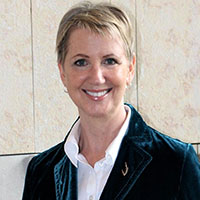
Including all children
Professor Gail Teachman’s research is helping ensure that children’s views on growing with disabilities are elicited and taken into account in programs and services that directly impact their lives. Her work examines the participation, inclusion and occupations of disabled children and youth with a particular focus on how their lives, identities, and moral experiences are influenced by rehabilitation practices.
Using a range of qualitative methodologies and informed by social theory, occupational science, childhood ethics, and critical disability studies perspectives, Professor Teachman’s research advances understanding of how children’s experiences of inclusion, exclusion and inequities are shaped by social, cultural and political contexts. To implement her program of research, Professor Teachman is developing innovative participatory approaches for doing research with children.
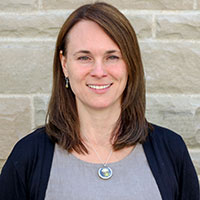 Housing is just the beginning for those leaving homelessness
Housing is just the beginning for those leaving homelessness
Professor Carrie Anne Marshall is working toward identifying what is needed for homeless persons to not only maintain their housing, but also to thrive once they’ve left long-term homelessness. In doing this, she hopes that formerly homeless persons with mental illness will be able to finding meaning in their housing and in their lives, and have the necessary resources to leave homelessness altogether. Community integration, employment, substance use, and mental health are just some of the challenges that existing strategies have failed to adequately improve once a person becomes housed.
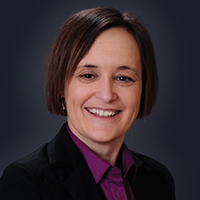 Challenging occupational inequities and expanding possibilities
Challenging occupational inequities and expanding possibilities
Working with a variety of community partners and persons facing challenges to doing the occupations they need and want to do in order to survive and thrive, professor Debbie Laliberte Rudman examines how changes in social policies and broader discourses, particular relevant to work, retirement, aging and disabilities, shape inequities in opportunities for occupations. Her work aims to raise awareness of how contemporary changes result in occupational inequities for particular social groups, like aging workers or persons experiencing age-related vision loss, and to inform policy, service and other types of solutions that open up occupational possibilities for such collectives.
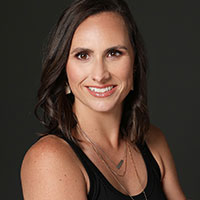 Keeping kids moving
Keeping kids moving
With childhood obesity rates increasing and physical activity levels decreasing, professor Trish Tucker is working with childcare centres to improve young children’s activity patterns. Her research focuses on understanding the environmental factors that support and deter physical activity among this unique population, and considers the challenges expressed by parents and childcare educators in getting kids moving.

